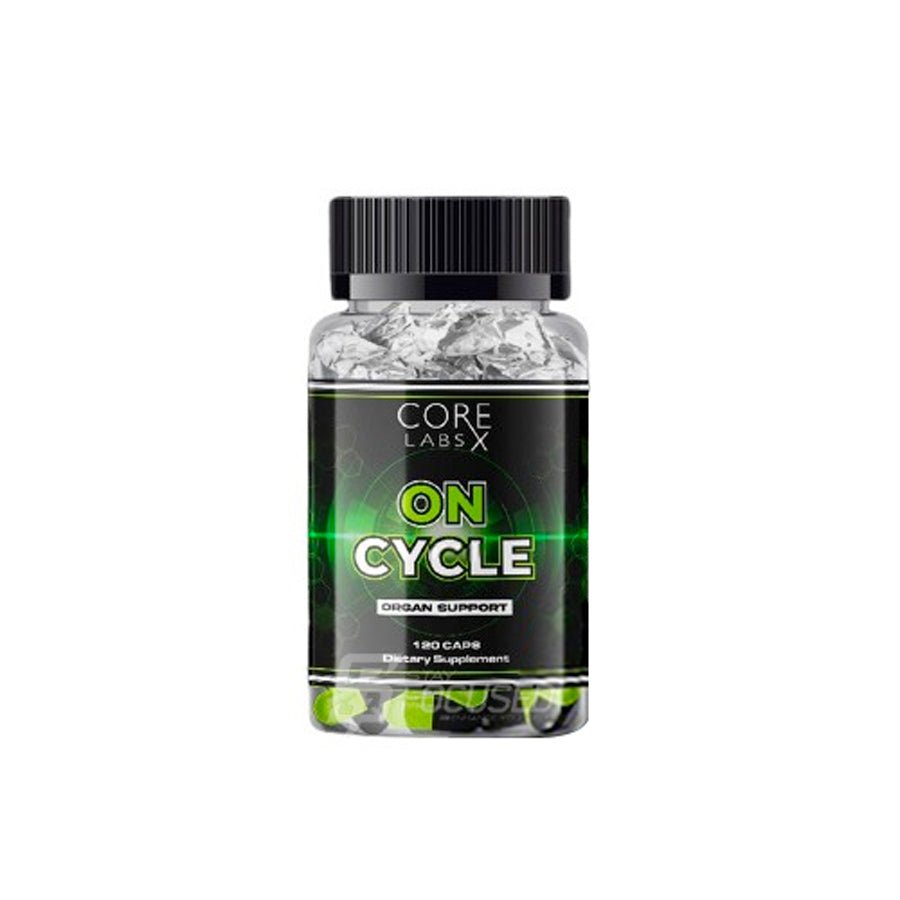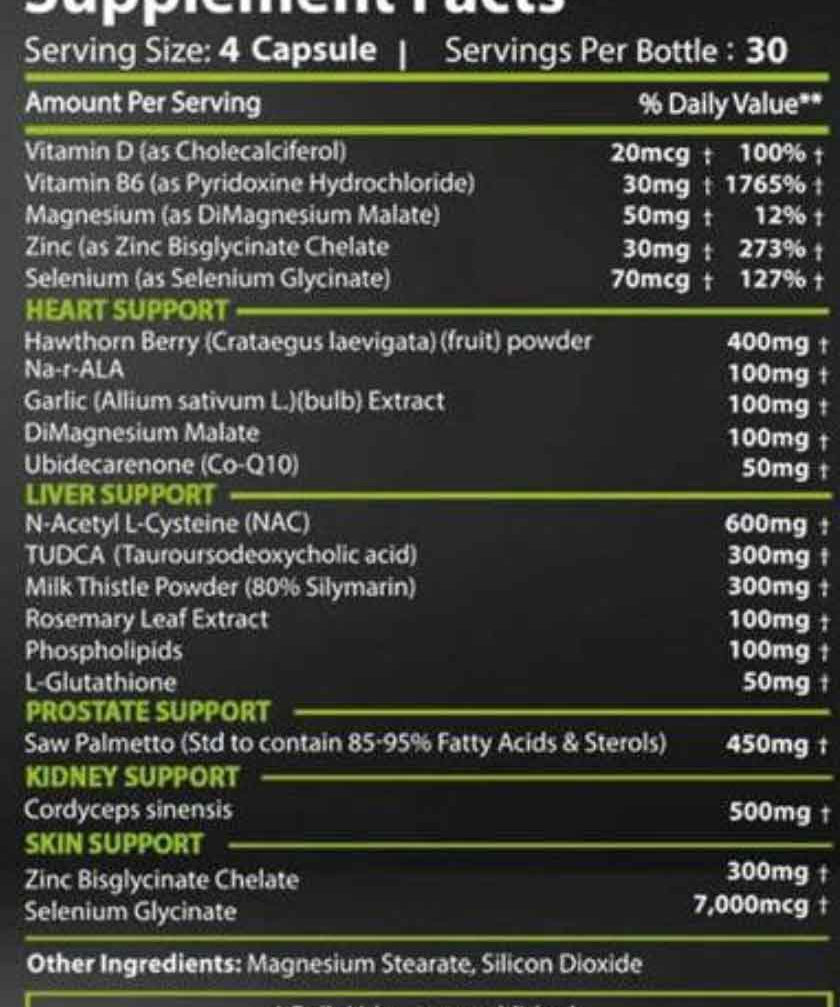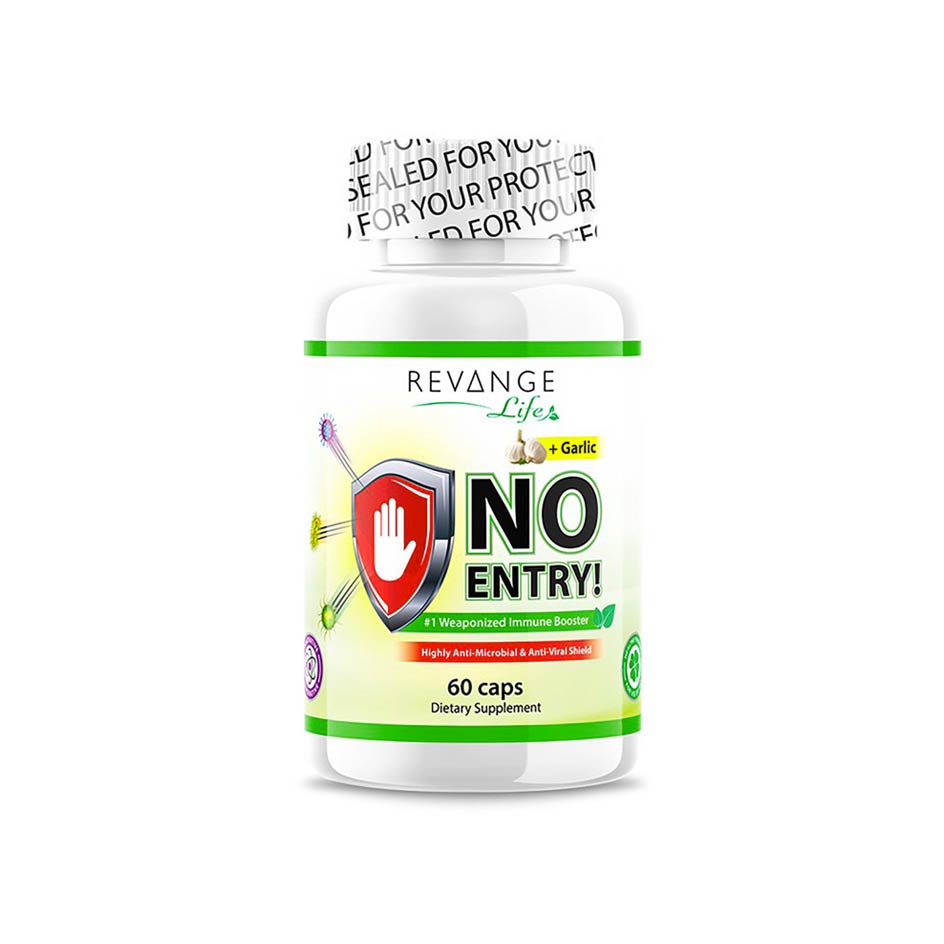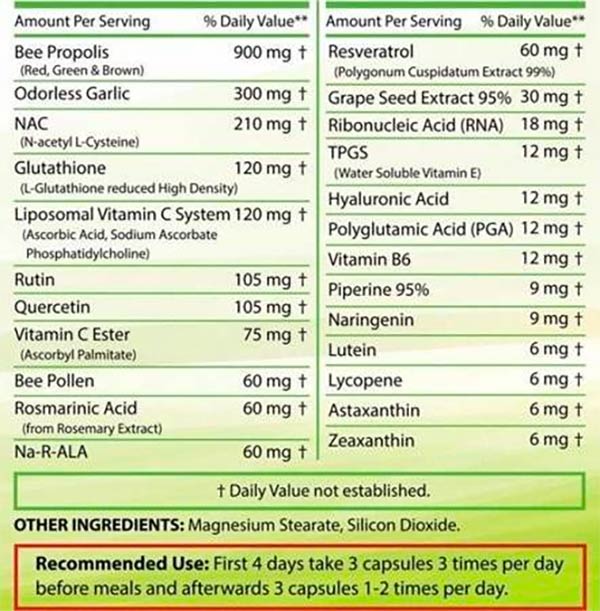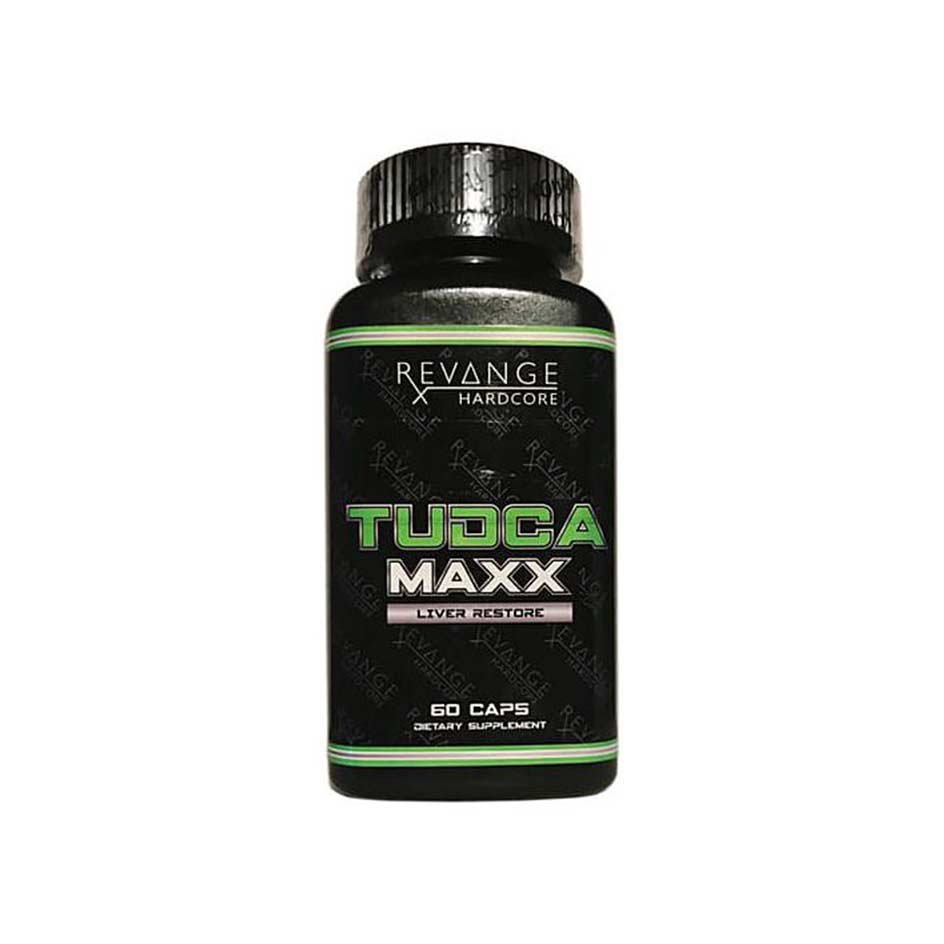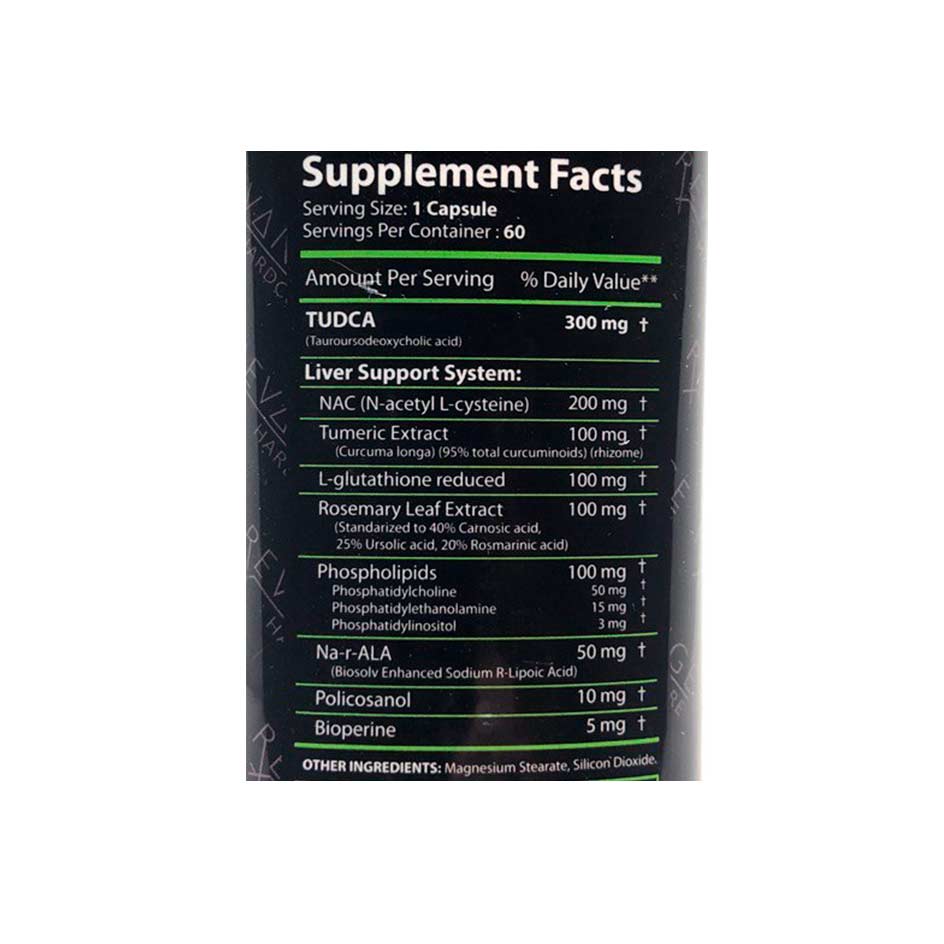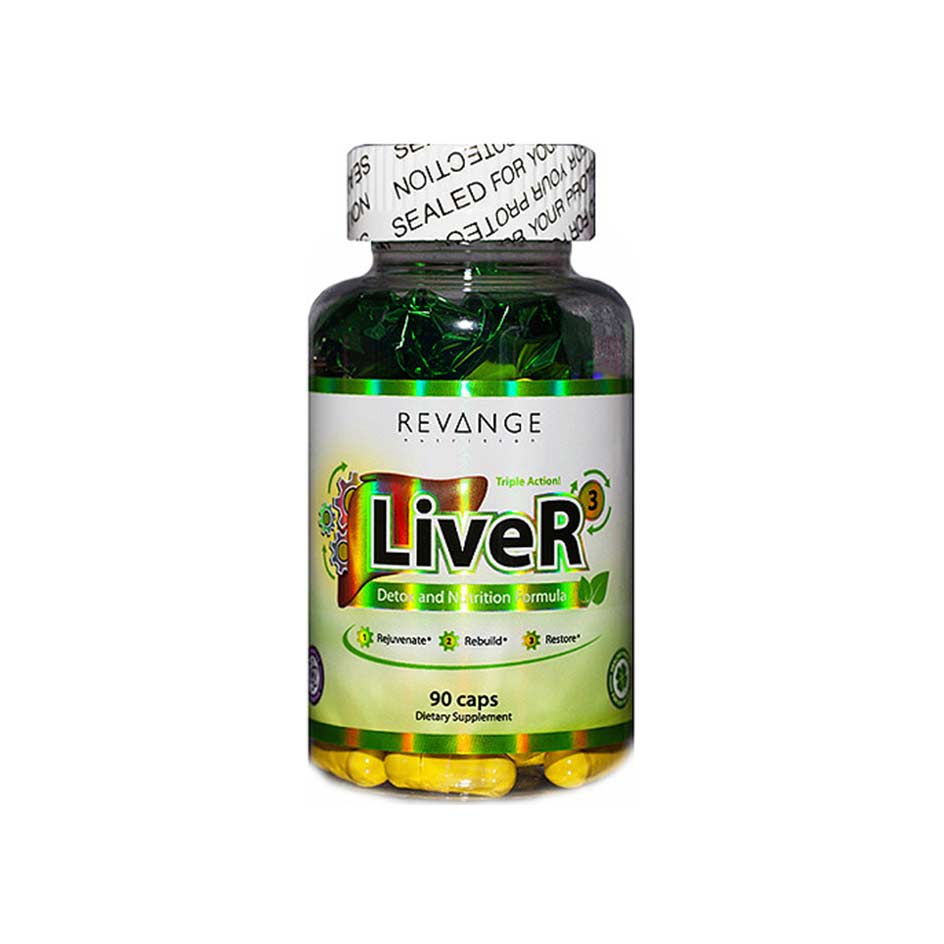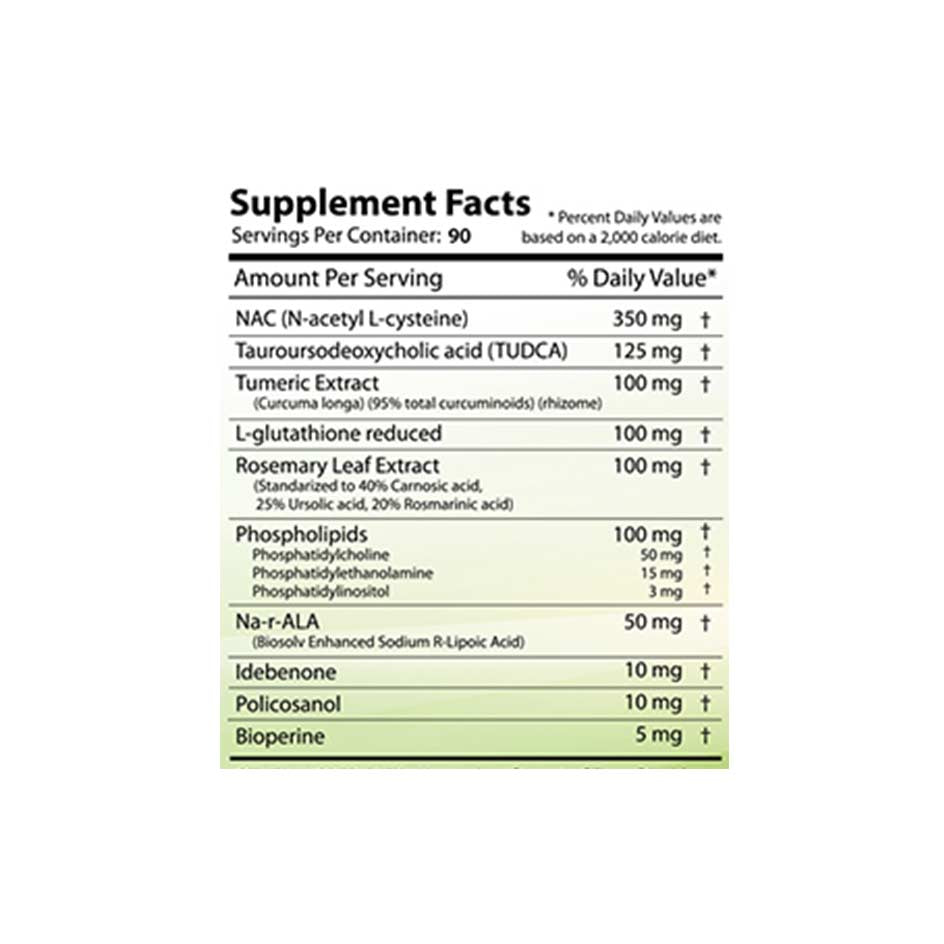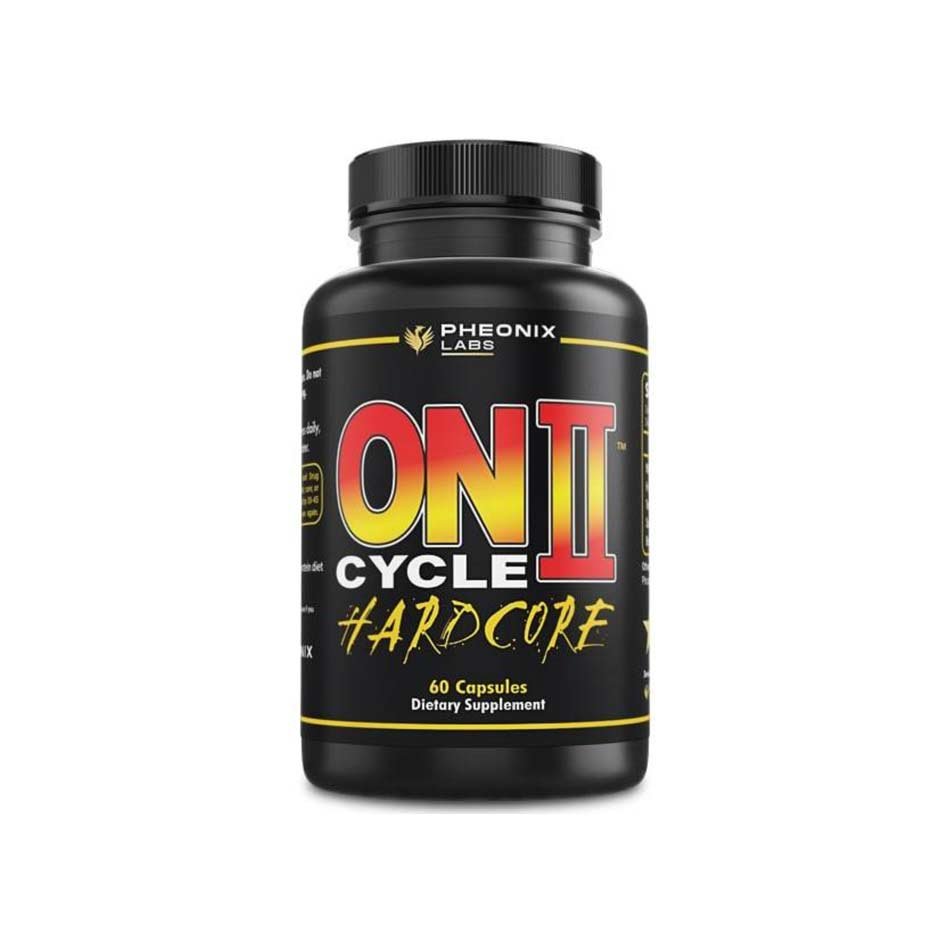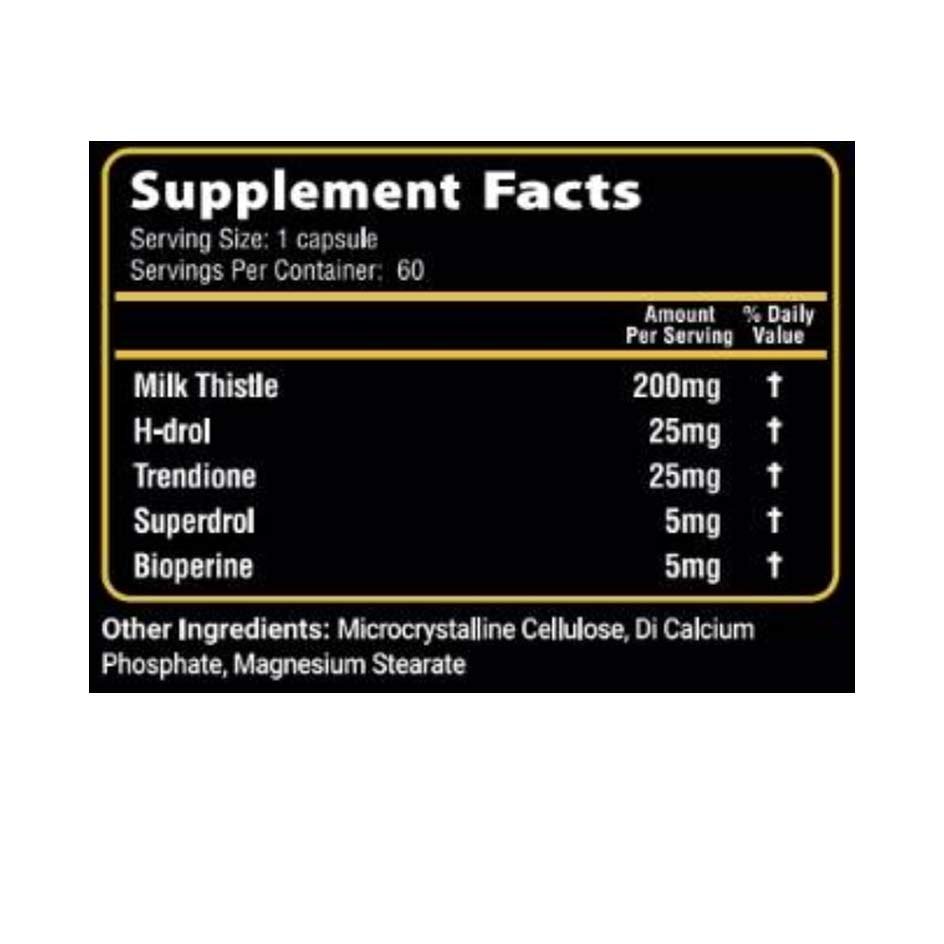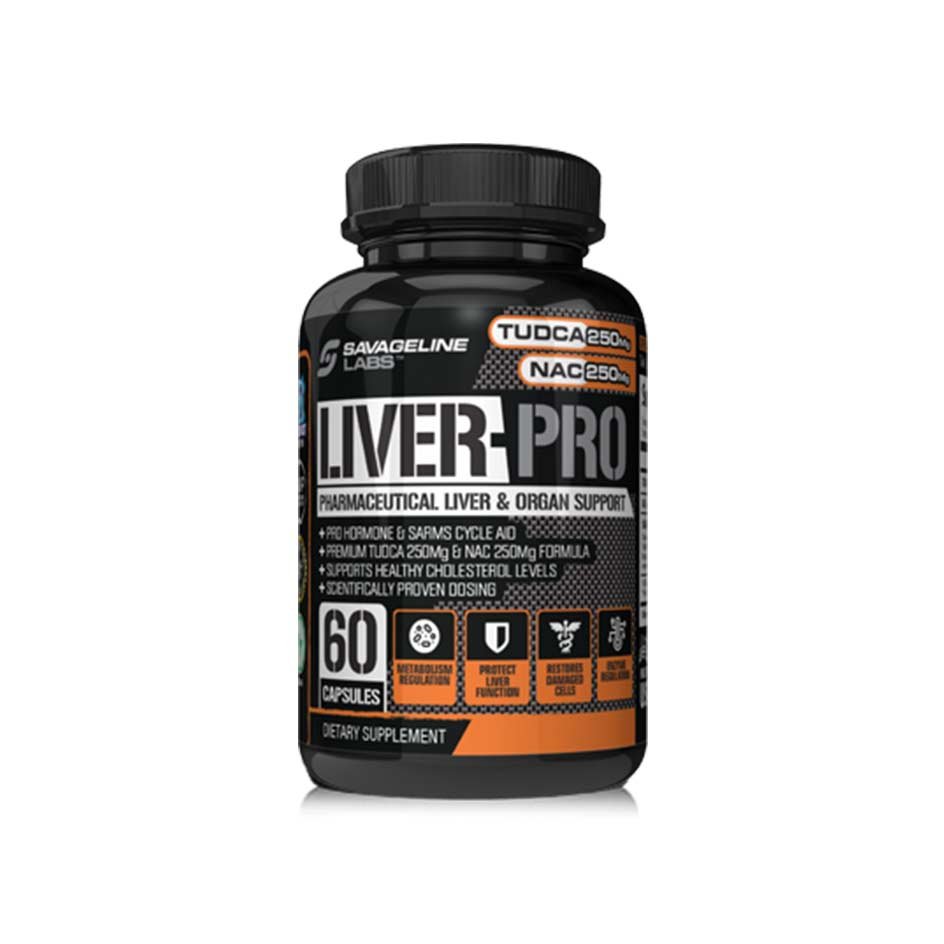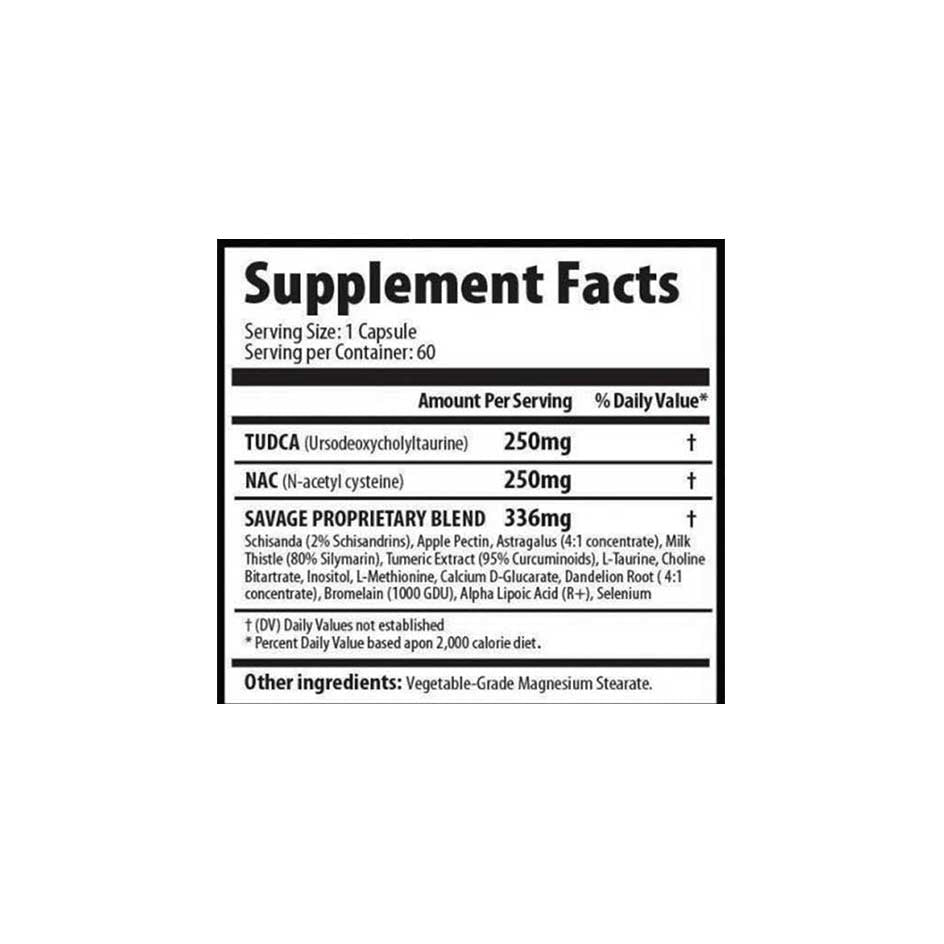Why liver protection?
Admittedly, the question "How can I best protect my liver?" is considerably less exciting than the question "How can I build muscle the fastest?" However, it is part of the more exciting second question. Because the fastest way to build muscle is with PEDs (performance enhancing drugs), i.e., with anabolic steroids.SARMsand withProhormonesAnd PEDs place a significant strain on the liver [1]. But even if you, as a bodybuilder, don't use PEDs, your liver is still at considerable risk from your sport—or more precisely, from everything that surrounds it. Why? After all, alcohol, the "number one liver killer," isn't usually an issue for people who practice strength training and bodybuilding? But the liver isn't only damaged by alcohol. The following factors also play a crucial role in liver health:
- Large amounts of food
Overeating with (too) high calorie and fat intake causes the body to store fat reserves – primarily in fatty tissue, but also in the liver. As a result, the liver can become partially fatty, which is then referred to as "non-alcoholic fatty liver disease" (NAFL). In Germany, one in four people over 40 is affected [2]. A fatty liver can no longer properly fulfill its detoxification functions in the body; liver function is severely impaired in NAFL. Since excessive eating is often involved in bodybuilding during mass-building phases, the strain on the liver caused by overeating in this sport should not be underestimated. - One-sided diet
Many strength athletes follow strict diets at certain times, such as a high-fat diet (keto diet) or a low-fat diet (keto diet).
High in carbohydrates (high-carb diet). Such one-sided diets place a strain on the liver, just like general overeating. - Drug use
Those who train intensively often resort to painkillers, which can dramatically increase liver function. Painkillers from the nonsteroidal anti-inflammatory drug (NSAID) group, and especially paracetamol, are considered extremely toxic to the liver [3]. Physical fitness and health don't necessarily go hand in hand in bodybuilding. Without targeted liver support through appropriate supplements, weightlifters risk overtaxing their liver in its detoxification function and suffering permanent damage.
Why do steroids put a strain on the liver?
However, the greatest danger to the liver in connection with bodybuilding undoubtedly comes from the use of anabolic steroids, or performance-enhancing substances in general. These substances damage the liver for several reasons:
Degradation in the liver
Most anabolic steroids are broken down (metabolized) in the liver, meaning the liver breaks down the steroid molecules into metabolites that are harmless to the body. This places a lot of work on the liver—accordingly, liver enzyme levels almost always rise during a steroid cycle. Only a very few steroids, such as injectable nandrolone (19-nortestosterone), leave the liver virtually unaffected.
17-alpha alkylation
Oral anabolic steroids, i.e., steroids and prohormones in tablet or capsule form, place an even greater strain on the liver than injectable preparations. This is due to the so-called first-pass effect: When potentially toxic substances are introduced into the body through food, they are absorbed in the gastrointestinal tract and immediately reach the liver, where they are normally rendered harmless. However, by rendering them harmless, their effect is also lost, which is why manufacturers of oral anabolic steroids make their products "liver-proof" through alkylation. Substances that are 17-alpha-alkylated resist the liver's attempts to neutralize them. However, due to the 17-alpha alkylation, they are extremely liver-toxic.DANGER:Alkylation is not unique to oral preparations. Some steroids, such as stanozolol, are ALWAYS 17-alpha-alkylated, regardless of whether they are available as an oral preparation or as an injectable. Therefore, injecting stanozolol is no less harmful to the liver than swallowing stanozolol tablets.
Shift in blood lipid levels
Virtually all anabolic steroids have negative effects on blood lipid levels, namely, they shift the HDL/LDL cholesterol balance in favor of "bad" LDL cholesterol. Since the liver is the primary storage site for cholesterol, excessively high LDL cholesterol levels, as well as overeating, can lead to fat deposits in and around the liver [4].
When using anabolic steroids, it is always a good idea to take liver protection supplements. It is not without reason that many liver protection supplements are called on-cycle therapy supplements (OCT supplements) orCycle Supportmarketed and sold.
How does liver protection work?
Liver protection supplements make the liver more resistant to all kinds of damaging influences. Some liver protection supplements can even help lower already elevated liver values; they thus support liver regeneration. Nevertheless, liver protection supplements should always be taken in parallel with anabolic steroid use, not afterward. This may prevent liver damage from occurring in the first place.
Which supplements protect the liver?
Fortunately, there are several substances that promote liver health. The best known and most effective are:
TUDCA (tauroursodeoxycholic acid)
Tauroursodeoxycholic acid is a compound found in bile acids. It reduces oxidative stress on the endoplasmic reticulum (ER) and thus counteracts inflammatory reactions in the liver. More importantly, TUDCA can improve liver function. Various studies have shown that supplementation with TUDCA leads to a reduction in liver enzyme levels [5]. TUDCA is available as a supplement both in pure form (e.g.,TUDCA by Nutra Innovations) and as a combination preparation (e.g. inOrgan FX Full Cycle Support from Meta-Com) available.
Milk thistle extract (silymarin)
Milk thistle has been known as a medicinal plant for centuries. Its active ingredient, silymarin, protects the liver from free radical damage and interacts with the outer membranes of liver cells (making the liver cell membranes more stable) [6]. Milk thistle extract is therefore included in almost all liver supplements, such asLiver Support from NP Nutritionor inMilk thistle from Krause Hof.
N-acetylcysteine (NAC)
NAC is a precursor to glutathione, one of the body's most powerful antioxidants. It helps the body break down toxins. Of all the detoxification organs, the liver is most dependent on glutathione, so it benefits enormously from supplementation with N-acetylcysteine. The substance is therefore also a component of many liver protection products, but it is also available as a stand-alone preparation (e.g.,N-Acetyl-L-Cysteine from HAYA LABS).
L-Glutathion
Some liver protectants (e.g.Liver3 Pro by Revange Nutrition) contain, in addition to NAC, pure glutathione in the form of reduced L-glutathione. L-glutathione can directly increase the synthesis capacity of liver cells.
What happens without liver protection?
If the liver is stressed over a long period of time by a problematic diet or anabolic steroids and isn't supported by appropriate supplements, it becomes diseased – and proper liver function is no longer possible. Although the liver has an amazing ability to regenerate, irreversible damage can still occur over time.
First of all, fat accumulation or fatty degeneration of the liver can occur. A fatty liver no longer functions properly and promotes diseases such as diabetes. However, as long as connective tissue remodeling of the liver has not yet begun, a fatty liver is curable [7]. (If you search for "liver regeneration after steroid treatment" in Google, you will receive reassuring information.) However, if the liver tissue has already changed, the affected part can no longer regenerate. This is referred to as liver cirrhosis. In cases of complete liver cirrhosis, a liver transplant is the last treatment option.
How can you recognize high liver stress?
But how can you tell if your liver is already damaged? Certainly not by the fact that it hurts, because even an overloaded liver doesn't produce pain. However, there are other signs that the liver isn't healthy and that liver function is at risk. One of the most important is unexplained fatigue or persistent exhaustion. "The pain of the liver is fatigue," say internists, and that's no empty phrase. However, since there are many possible causes for fatigue and exhaustion, these symptoms alone are not a sure sign of liver overload. However, if digestive problems, loss of appetite, and excessive bloating after fatty meals occur, liver overload is quite likely. Clear signs include yellowish skin and eyes (jaundice), as well as noticeably dark urine and skin changes. The latter are caused by the liver no longer being able to break down ingested toxins, which then become noticeable in the skin's texture.
If you notice one or more of these symptoms, it is high time to address liver health and take liver protection measures.
Where can you buy liver protection supplements?
Herbal liver protection supplements such as milk thistle extract are available in virtually every online shop that sells dietary supplements. Such supplements are also available in online pharmacies and even in drugstores like dm. Things get more complicated with TUDCA and TUDCA-containing preparations. Because TUDCA is still a research topic, it is not approved as a dietary supplement in all countries. However, TUDCA preparations are readily available in well-stocked supplement shops. Liver protection supplements with various, coordinated ingredients, on the other hand, are only available in shops that specialize in sports nutrition supplements for strength athletes and bodybuilders.
If you want to buy liver protection, you've come to the right place at GETBOOST3D. Here you'll find a huge selection of multifunctional supplements that contain all the substances important for liver protection in high doses. Because if youExtreme Muscle Builder ProductsOn the other hand, if you sell a product, you should also have liver protection products in your range.
- dshs-koeln.de (2024): Side effects of anabolic steroids (https://www.dshs-koeln.de/institut-fuer-biochemie/doping-substanzen/nebenwirkungen-von-dopingmitteln/nebenwirkungen-von-anabolika/)
- deutsche-leberstiftung.de (2024): Non-alcoholic fatty liver disease (NAFL) – number one among fatty liver diagnoses (https://www.deutsche-leberstiftung.de/presse/pressemappe/lebererkrankungen/fettleber/nicht-alkoholische-fettleber/)
- arznei-telegramm.de (1994): Liver damage caused by nonsteroidal anti-inflammatory drugs (https://www.arzneitelegramm.de/html/1994_03/9403032_03.html)
- lipid-liga.de (2024): Recommendations for the diagnosis and treatment of lipid metabolism disorders (https://www.lipid-liga.de/empfehlungen/)
- C. Panella et al. (1995): “Does tauroursodeoxycholic acid (TUDCA) treatment increase hepatocyte proliferation in patients with chronic liver disease?”
(https://pubmed.ncbi.nlm.nih.gov/8541578/) - fitbook.de (2023): Effects, dosage and possible risks of milk thistle (https://www.fitbook.de/ernaehrung/mariendistel-nahrungsergaenzung)
- netdoktor.de (2023): Fatty liver: Treatment (https://www.netdoktor.de/krankheiten/fettleber/behandlung/)






